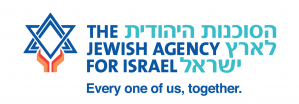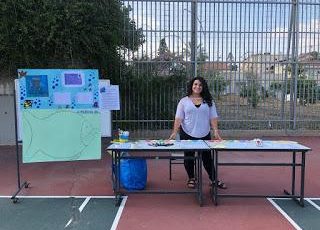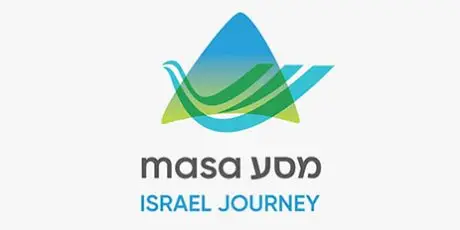Courtney Anne Roy, a Canadian transplant to Palm Bay, FL, is living and teaching in Be’er Sheva, Israel this year with Masa Israel Teaching Fellows and Tlalim. She earned a Honor’s BS in Exceptional Education and Psychology (University of Central Florida; 2014), and a Master’s of Philosophy in Research in Second Language Acquisition (University of Cambridge; 2016).
Q: Why Israel?
When first visiting Israel in 2004 with my family, I felt an immediate sense of homecoming. Even at a young age, I could finally embrace my Jewish heritage and history without scrutiny. As the years went by, I became more acquainted with the land, its people, culture, and history.
Q: What was your favorite moment so far during your time in Israel?
Every day I’ve experienced a moment which develops a stronger appreciation for
this opportunity in Israel. The overlying theme is chevrah – community.
One experience that truly epitomizes this was as I was boarding a bus to Jerusalem. An older gentleman was situated towards the back of the crowd, he was blind. When the bus approached, one man said, “S’licha, ha’ish tzarich l’avor (Please let the man go by)”. Without question, the whole crowd shifted and guided the gentleman forward. A few soldiers assisted him to put his baggage u nder the bus, then towards the door while everyone else waited patiently. It’s very rare to see such social exchanges where 20+ people collectively take a few minutes of their time to help one person. It’s even scarcer to see it done instinctively.
Q: What was your program like, what made it different from life in the USA?
The program has been a whirlwind from the beginning with getting acclimated into a new living situation; meeting other Fellows, co-workers, and students; developing and teaching lessons; volunteering and creating relationships in the community; exploring the country’s abundance of activities/events; constantly learning about new perspectives or ideals that are widely contrasting. I have loved every moment of this stimulating environment!
Before participating in the Masa Fellowship, I lived in a sleepy neighborhood where a majority ‘looks out for their own’ and are focused on the present. As a certified educator working in lower-socioeconomic Florida public schools, I strived to advocate tolerance and diversity, while encouraging my students to create a better future. Now, I’m living within the Heart of the Negev, with an active, diverse community. People care for one another, regardless of their ethnic or social class. It’s an experience I want to remember and hope to share with others.
Q: How do you think teaching in Israel has helped you on your journey to a meaningful career and future?
While working in Israel has allowed me to grow as a classroom teacher, it also matured my abilities as a pedagogical advocate and leader. Prior to arriving for Masa, I had taken a personal interest in methods that improve schools’ resource accessibility. An opportunity to act came when I discovered my host school in Be’er Sheva had neither a library nor English literature. As a solution, I contacted Jewish federations and U.S.-based educators for support. Long story short, thanks to help from the Florida Jewish community and others, my school now has a library with over 170 English books! This challenging undertaking, along with others, strengthened my motivation to continue finding innovative and collaborative ways to address educational inequality.
Q: Any advice for incoming Masa Israel Teaching Fellows?
Probably the most important advice is to be open-minded about Israel’s society. You’ll be exposed to a large variety of communities and individuals with different ideals, backgrounds, and lifestyles. During my time here, I’ve interacted with Orthodox, Bedouins, African refugees, Christian Arabs, Russians, Moroccans, secular Israelis, other Masa Fellows and more. Each of them has shaped this journey, and broadened my outlook on Judaism, socio- and geo-political issues in the Middle East, and social entrepreneurship. It’s crucial to be respectful and tolerant about their perspectives, yet I highly encourage to actively partake in dialogue.









